ARTICLE AD BOX
Image source, Getty Images
The Metropolitan Police is investigating parties held in Downing Street and Whitehall during the coronavirus pandemic.
It was launched after a separate inquiry, led by civil servant Sue Gray, passed information to the force.
What events are police investigating?
We don't know how many events the police are looking at.
So far the Met has only said it is investigating "a number of events that took place at Downing Street and Whitehall in the last two years in relation to potential breaches of Covid-19 regulations".
The decision to start the investigation was the result of information provided by the senior civil servant Sue Gray's inquiry team and "officers' own assessments", Met Commissioner Dame Cressida Dick said.
Why are police investigating No 10 parties?
The commissioner said the Met would not normally investigate past breaches of Covid-19 regulations.
But she said retrospective investigations were carried out for "the most serious and flagrant type of breach" where there was evidence and certain criteria were met, including:
- there was evidence that those involved knew, or ought to have known that what they were doing was an offence
- where not investigating would significantly undermine the legitimacy of the law
Watch Dame Cressida Dick announce the Met Police's investigation into No 10 lockdown parties
How long will the police investigation take?
In some ways this is a very straightforward investigation for the police, says BBC home affairs correspondent Daniel Sandford.
Much of the leg work will have been done and the police need to decide who was at the events and whether they had a good reason to be there, he says.
"This is not a multi-month investigation, this is something that should be containable in a small number of weeks."
The investigation will be carried out by the Met's long-standing Special Inquiry Team - the UK's principle counter-political corruption unit.
The unit has previously carried out more than 170 investigations - such as people using a position of political power for their own gain, misconduct in public office and electoral fraud.
What action could be taken?
Under the Coronavirus Act, Covid breaches are classified as summary offences.
This means they do not come with prison sentences, but are punishable by fines.
During the summer of 2020, the Met Police had the power to fine people £100 for the first Covid offence (lowered to £50 if paid within 14 days). Fines for subsequent offences could then double, up to a maximum of £3,200.
Failure or refusal to pay the fine could result in being prosecuted and having to go to court.
However, the fact the police are investigating Downing Street events does not mean "fixed penalty notices will necessarily be issued in every instance and to every person involved", Dame Cressida said.
Who will be investigated and interviewed?
We don't know for sure as the Met has not said which gatherings it is investigating.
As well as those it is looking into, Dame Cressida said "several other events" had been assessed but were not thought to have reached the threshold for an investigation.
Asked by journalists whether the prime minister was willing to be interviewed by officers, his spokesman responded: "Anyone asked to will cooperate fully as you would expect."
Timeline: The alleged government gatherings
The government is facing mounting pressure over several events that are alleged to have been held during lockdowns. Here is what we know about them and the restrictions in place at the time:
10 May 2020
Boris Johnson announced a plan to take the “first careful steps" out of the lockdown that began in March 2020. But he said people should continue to "obey the rules on social distancing and to enforce those rules we will increase the fines for the small minority who break them”.
Legal restrictions at the time said you could not leave your house without a reasonable excuse and government guidance was that you could meet one person outside of your household in an outdoor setting while exercising.
15 May 2020
A photo from May 2020 showed the prime minister and his staff with bottles of wine and a cheeseboard in the Downing Street garden. When asked about it, Boris Johnson said, “those people were at work talking about work”.
20 May 2020
About 100 people were invited by email to “socially distanced drinks in the No 10 garden” on behalf of the prime minister’s principal private secretary, Martin Reynolds.
Witnesses told the BBC the PM and his wife were among about 30 people who attended.
Boris Johnson has confirmed he attended the event, saying he was there for 25 minutes and “believed implicitly that this was a work event”.
19 June 2020
On Boris Johnson’s birthday, up to 30 people gathered in the Cabinet Room at No 10 to present the prime minister with a birthday cake and sing Happy Birthday, according to a report by ITV News.
No 10 said staff had “gathered briefly" to "wish the prime minister a happy birthday", adding that he had been there "for less than 10 minutes”.
Rules at the time banned most indoor gatherings involving more than two people.
17 July 2020
Boris Johnson announced plans for a “significant return to normality" in England by Christmas "through targeted, local action” instead of national lockdowns.
But he added that the timetable relied on “every one of us staying alert and acting responsibly”.
5 November 2020
With cases of coronavirus rising again, the prime minister told people in England that “we are once again asking you to stay at home” as a new national lockdown began.
He said people should only leave their homes “for work if you can’t work from home, for education, and for essential activities and emergencies”. Indoor gatherings with other households were banned, unless they were for work purposes.
13 November 2020
Sources told the BBC that Downing Street staff members attended a gathering with Carrie Johnson in the flat where she and the prime minister live. A spokesman for Mrs Johnson denies the party took place.
27 November 2020
A leaving event was held for No 10 aide, Cleo Watson, where people were drinking, and Mr Johnson made a speech, according to sources.
2 December 2020
The second national lockdown ended after four weeks but Boris Johnson replaced those restrictions with “tough tiers to keep this virus down”.
London was placed in tier two, which banned two or more people from different households from meeting indoors, unless “reasonably necessary” for work purposes.
10 December 2020
The Department for Education has confirmed it had an office gathering to thank staff for their work during the pandemic. It says drinks and snacks were brought by those who attended and no outside guests or support staff were invited.
14 December 2020
The Conservative Party has admitted that an “unauthorised gathering” took place at its HQ in Westminster. It was held by the team of the party's London-mayoral candidate, Shaun Bailey, who has since stepped down as chair of the London Assembly police and crime committee. The Metropolitan Police is to speak to two people who attended the party.
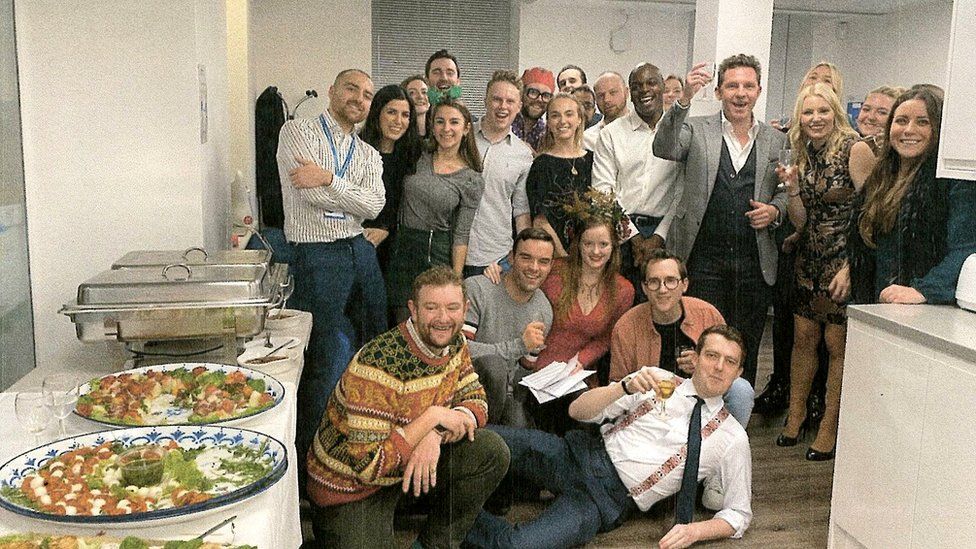 Image caption The gathering at the Conservative Party headquarters was described as ‘raucous’
Image copyright by Daily Mirror
Image caption The gathering at the Conservative Party headquarters was described as ‘raucous’
Image copyright by Daily Mirror
15 December 2020
Multiple sources have told the BBC there was a Christmas quiz for No 10 staff last year. A photo - published by the Sunday Mirror - showed Boris Johnson taking part and sitting between two colleagues in No 10. Mr Johnson has denied any wrongdoing.
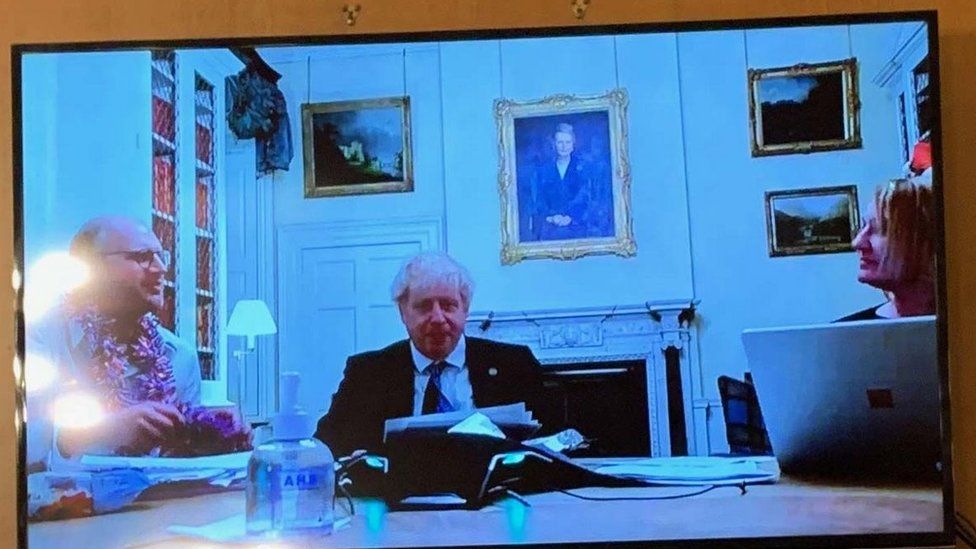 Image caption Mr Johnson was pictured in the No 10 library under a portrait of Margaret Thatcher
Image copyright by Sunday Mirror
Image caption Mr Johnson was pictured in the No 10 library under a portrait of Margaret Thatcher
Image copyright by Sunday Mirror
16 December 2020
London moved into the highest tier of restrictions and Matt Hancock, who was health secretary at the time, said it was important “everyone is cautious” ahead of the festive period.
The Department for Transport apologised after confirming reports of a party in its offices that day, calling it “inappropriate" and an "error of judgment” by staff.
17 December 2020
A leaving party was held at the Cabinet Office for the outgoing head of the civil service Covid taskforce - the team responsible for drawing up coronavirus restrictions.
Kate Josephs, now chief executive of Sheffield City Council, apologised for the event, saying she was “truly sorry that I did this and for the anger that people will feel as a result”.
18 December 2020
Downing Street originally denied a report by the Daily Mirror that a party took place in Downing Street.
However, a video obtained by ITV News showed the prime minister's then-press secretary Allegra Stratton, joking about reports of an event, saying: “This fictional party was a business meeting and it was not socially distanced.”
12 April 2021
Lockdown restrictions were eased in England, with pubs and restaurants allowed to reopen with outdoor service only.
However, working from home continued to be recommended and socialising indoors with people from other households was not allowed. Meeting others outdoors was limited to groups of six people or two households.
16 April 2021
Two parties were held by Downing Street staff at No 10, the night before Prince Philip's funeral.
One of the events was a leaving party for the PM's then director of communications James Slack, who has apologised for the event and acknowledged it “should not have happened at the time that it did”.
Boris Johnson was not at either party.
Has the police investigated a serving PM before?
Back in 2006, Tony Blair became the first prime minister to be questioned by police in the course of an investigation.
The investigation was into allegations that peerages were given out in return for donations.
Mr Blair was not interviewed under caution, so he was treated as a witness rather than a suspect.
In July 2007, it was announced that no-one would face charges.
What does the investigation mean for the Sue Gray report?
The police investigation could mean that the separate investigation into Downing Street parties - carried out by senior civil servant Sue Gray - will be delayed.
However, a Downing Street spokesman said some parts of the report - the elements not being investigated by the police - could still be published.
How has Boris Johnson responded?
The prime minister said he welcomed the Met's announcement because it would "help to give the public the clarity it needs and help to draw a line under matters".
His spokesman said Mr Johnson did not think he had broken the law.
Opposition parties have repeated their calls for him to resign.

 3 years ago
61
3 years ago
61
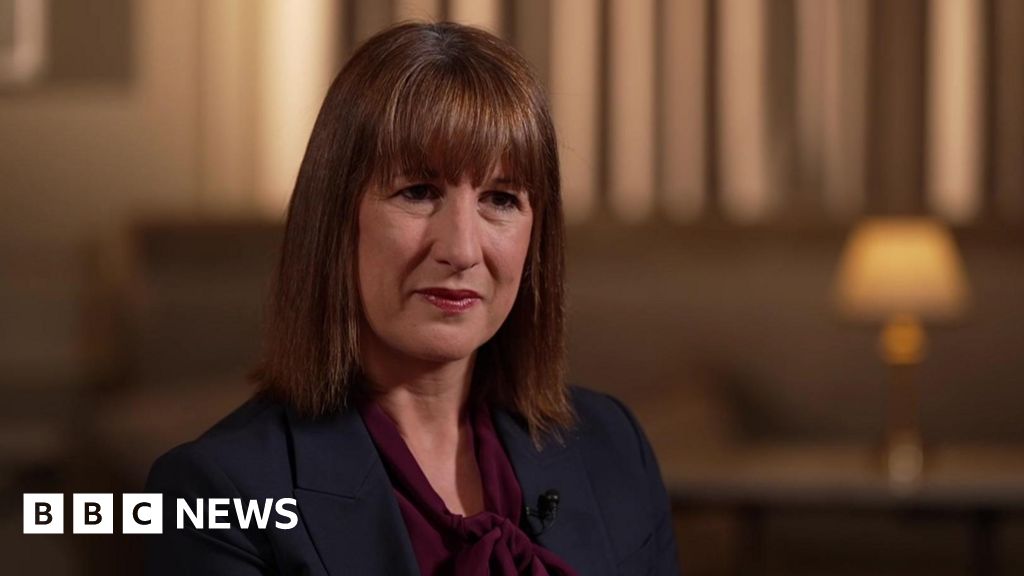
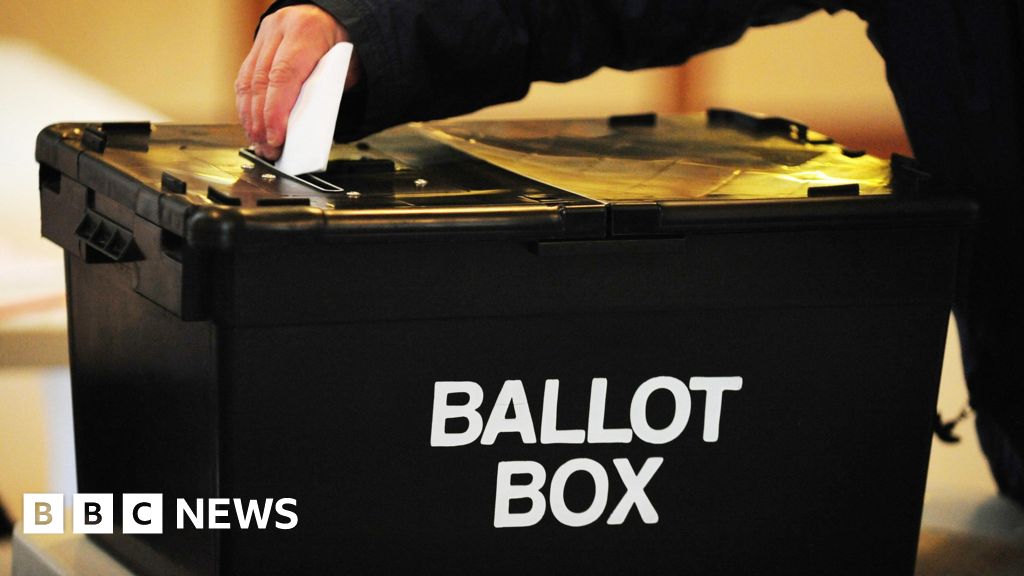
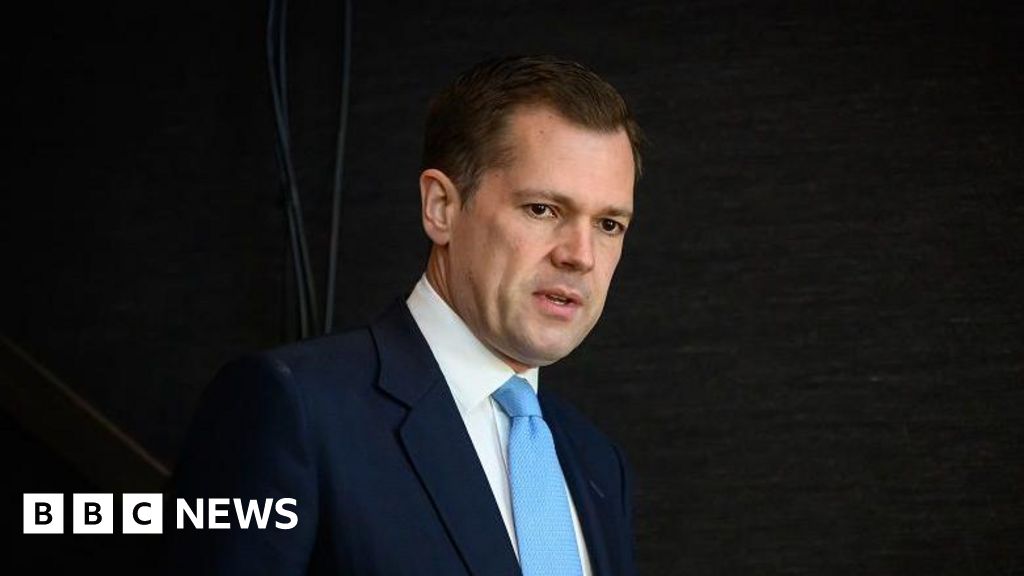





 English (US) ·
English (US) ·